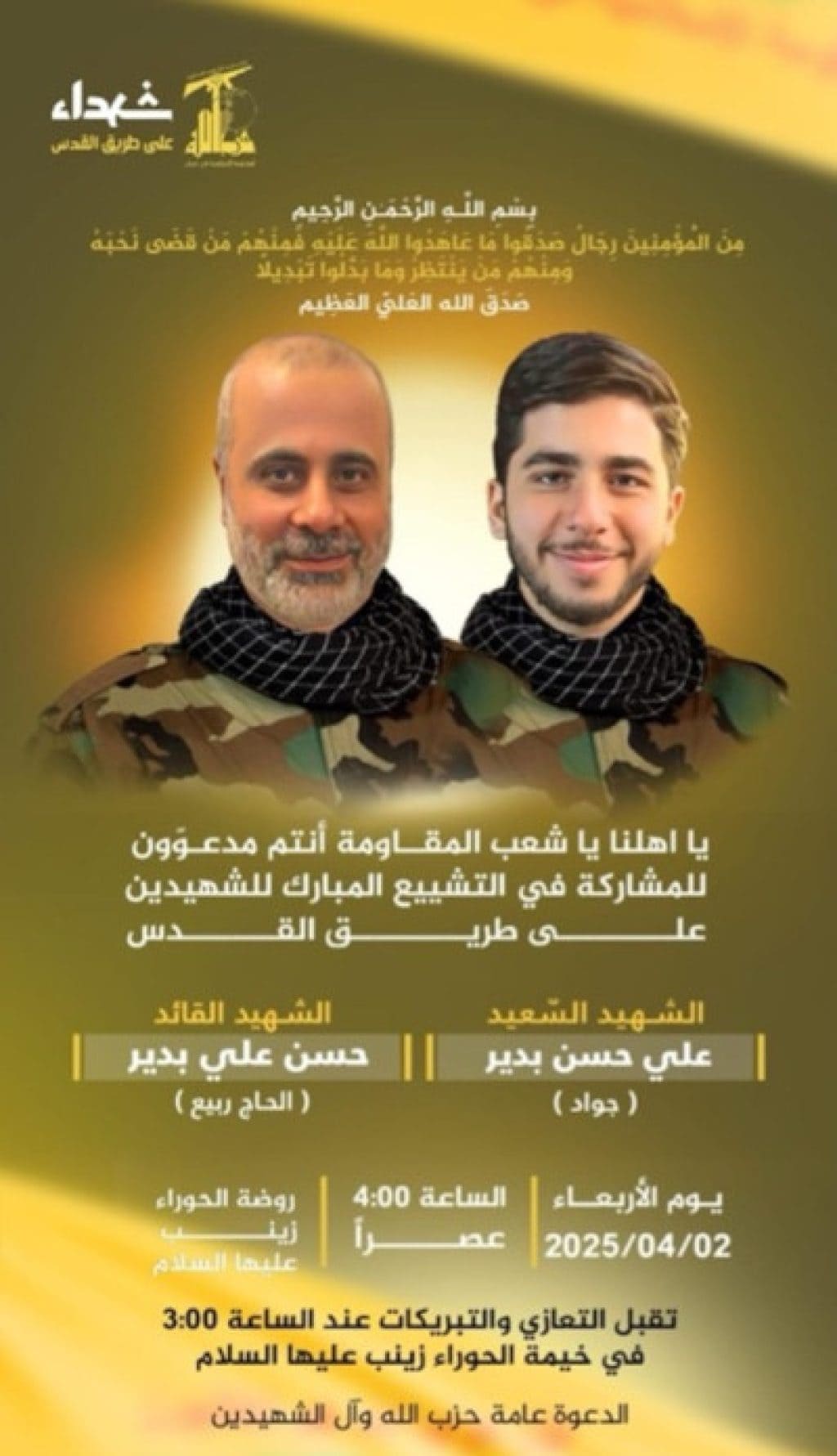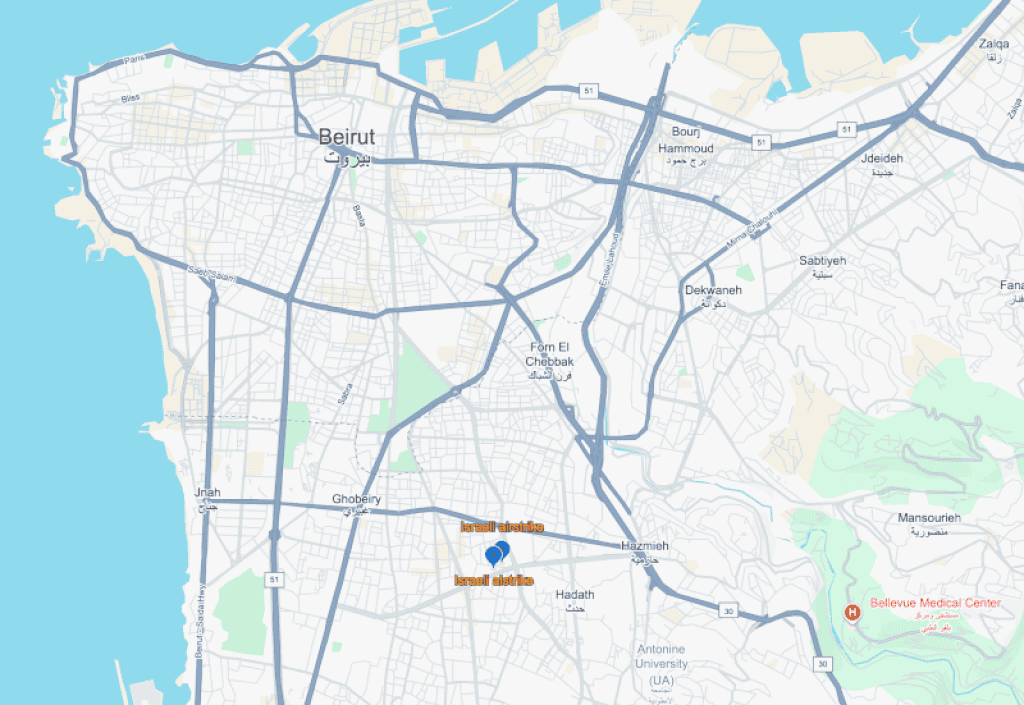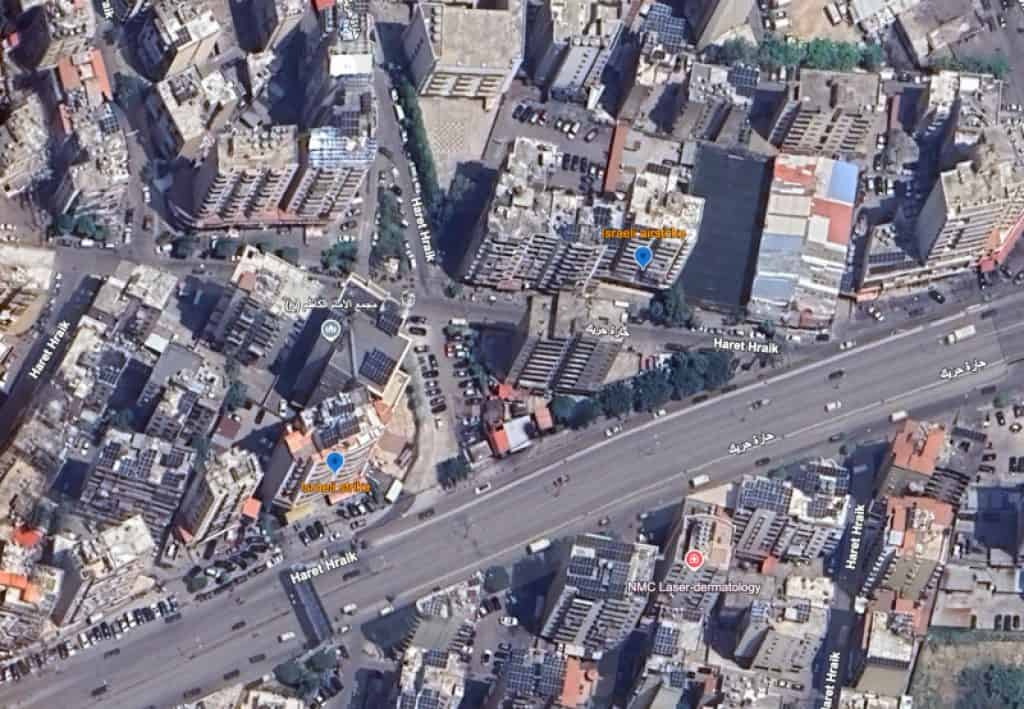
On Tuesday at approximately 3:44 am, Israeli jets conducted airstrikes in the southern Dahiyeh suburbs of Beirut for the second time in as many weeks and since the Israel-Lebanon ceasefire on November 27, 2024. The strikes appear to have hit the top three floors of two buildings in the Madi neighborhood of Dahiyeh’s Haret Hreik area.


Almost immediately after the strikes, the IDF issued a statement saying it targeted “a Hezbollah terrorist a short while ago in the Dahiyeh area of Beirut who was recently directing Hamas operatives and aided them in attempts to conduct a serious terrorist attack in the near future against Israeli citizens.” Hours later, the IDF revealed it had killed Hassan Ali Mahmoud Badeer, an operative in Hezbollah’s Unit 3900 who was also affiliated with the Quds Force, the external arm of Iran’s Islamic Revolutionary Guard Corps.
The IDF said that the terror attack Badeer had been aiding Hamas operatives to commit “was planned to be carried out immediately and intended to hurt Israeli citizens and therefore Hassan Badeer was killed immediately to eliminate the threat.” The IDF statement noted that Badeer’s activities “constitute a violation of the understandings between Israel and Lebanon.” Ynet reported the attack was meant to target “an Israeli target abroad” and would have “killed hundreds of Israelis” had it succeeded.
Soon after the strike, Hezbollah announced the death of two of its operatives, Badeer, whose nom de guerre is Al Hajj Rabia, and his son, Ali Hassan Badeer, whose nom de guerre is Jawad.
The Lebanese Health Ministry announced four people had been killed in the strike, including Hassan and Ali Badeer. The other two fatalities were Ahmad Mohammad Mahmoud and his sister, Hiyam Mohammad Mahmoud. The Ministry announced seven other people were wounded, including the Mahmoud siblings’ mother Iman.
Hezbollah has yet to issue an official statement on the strike. However, one of the group’s parliamentarians, Ibrahim Al Musawi, called the strike “a massive aggression that has shifted the situation into a new phase” and referenced Hezbollah Secretary-General Naim Qassem’s cryptic threats from last week to resume attacking Israel.
At the same time, Musawi also stressed that while Israel had “practically declared the end of the ceasefire,” Hezbollah remains committed to the deal. However, he noted that if diplomatic avenues failed to end Israel’s attacks, “then [Hezbollah will] deal with the situation appropriately.” Musawi added that “any change in [our] position will be announced at the appropriate time by Hezbollah’s leadership.”
Musawi held the United States and the West responsible for the strike and called on the Lebanese state to employ all diplomatic pressure possible to put an end to Israel’s ongoing attacks in Lebanon.
Musawi’s fellow Hezbollah parliamentarians also weighed in. Hussein Al Hajj Hassan echoed Musawi, saying Hezbollah “is monitoring [the situation] and following [developments] and will have a [response] at the appropriate time.” Ali Ammar stressed that Hezbollah’s “exceptional patience in dealing with the enemy […] has limits.” Ammar said Israel only “understands the language of resistance, endurance, and steadfastness” and “the resistance remains present and is completely ready to face any new aggression.”







